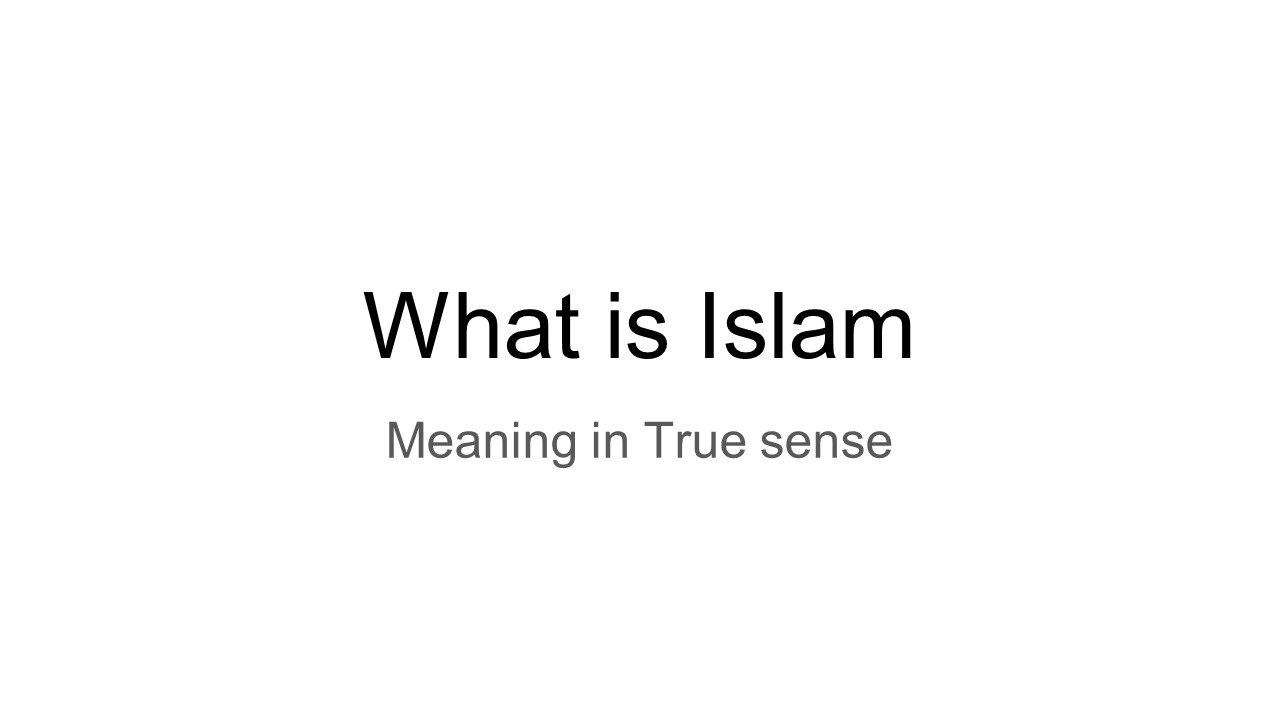Islam and its meaning - PowerPoint PPT Presentation
Title:
Islam and its meaning
Description:
Explore the depth of Islam and its profound meaning in this presentation. Discover its core beliefs, practices, and its impact on followers' lives. Gain insights into the spiritual essence that guides millions worldwide – PowerPoint PPT presentation
Number of Views:2
Title: Islam and its meaning
1
What is Islam
- Meaning in True sense
2
Pillars of Islam
- The Islamic pillars, central to a Muslim's life,
are - 1. Shahada (Faith) Declaring belief in the
oneness of Allah and the prophethood of Muhammad. - 2. Salat (Prayer) Performing five daily
prayers facing Mecca, fostering a strong
connection with Allah. - 3. Zakat (Charity) Giving a portion of
wealth to support the needy and promote social
justice. - 4. Sawm (Fasting) Observing fasting during
Ramadan, cultivating self-discipline and empathy. - 5. Hajj (Pilgrimage) Undertaking a
pilgrimage to Mecca once in a lifetime,
symbolizing unity and devotion.
3
Soennah
- The term you're referring to is likely "Sunnah,"
not "Seonnah." Sunnah is a central concept in
Islam, referring to the actions, sayings,
approvals, and habits of the Prophet Muhammad. It
complements the teachings of the Quran and
provides a practical example of how Muslims
should live their lives in accordance with
Islamic principles. - Sunnah encompasses a wide range of practices,
both religious and everyday, that the Prophet
Muhammad followed and recommended to his
followers. These practices include various
aspects of daily life, such as how to pray, how
to conduct oneself in business transactions, how
to interact with family and community, and more. - Muslims look to the Sunnah as a guide for living
a righteous and ethical life. The collection of
the Prophet's sayings and actions is documented
in books of Hadith, which are categorized based
on their authenticity and reliability. Following
the Sunnah is considered a way to gain Allah's
favor and emulate the exemplary life of the
Prophet Muhammad.
4
Hadith
- Hadith are the recorded traditions, sayings,
actions, and approvals of the Islamic prophet
Muhammad. They provide additional guidance and
context to the teachings of the Quran, forming an
integral part of Islamic literature and
jurisprudence. Hadith serve as a practical guide
for Muslims, illustrating how to live according
to the principles outlined in the Quran. - These traditions were passed down orally from the
time of the Prophet Muhammad and were eventually
compiled into written collections by scholars.
The scholars categorized hadith based on their
authenticity and reliability, with the most
reliable ones being used as a source of guidance
for religious and ethical matters. - Hadith collections are typically organized into
books, each focusing on different aspects of
daily life, religious practice, ethics, and legal
matters. The two most well-known collections are
Sahih al-Bukhari and Sahih Muslim, both of which
are considered highly authentic by Sunni Muslims.
Shia Muslims have their own collections and
sources of hadith. - Scholars scrutinize the chain of narrators
(isnad) and the content (matn) of each hadith to
determine its authenticity. Authentic hadith
provide insight into the Prophet's character and
actions, shedding light on how he applied and
interpreted the teachings of the Quran in various
situations. - Hadith play a crucial role in Islamic
jurisprudence, as they help clarify matters not
explicitly addressed in the Quran. They
contribute to the formation of Sharia, Islamic
law, and provide a framework for personal
conduct, social interactions, religious rituals,
and legal rulings.
5
Purpose of life
- In Islam, life's purpose is to worship Allah,
submit to His will, and seek His pleasure. It
involves spiritual growth, ethical conduct,
accountability, and serving humanity. Muslims
believe in a test of deeds and aim for eternal
life by following the teachings of the Quran and
Prophet Muhammad.
6
Contact us
- https//islamguide.eu/
- https//twitter.com/home
- https//www.linkedin.com/feed/
- https//www.facebook.com/profile.php?id1000909592
10259 - https//www.instagram.com/islamguide.eu/































